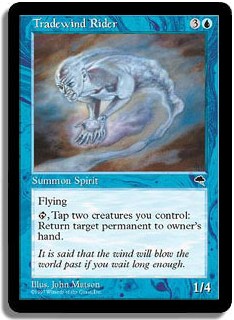Are you a Quiet Speculation member?
If not, now is a perfect time to join up! Our powerful tools, breaking-news analysis, and exclusive Discord channel will make sure you stay up to date and ahead of the curve.
When I returned to Magic a few years ago, I had no idea how to price my cards for trades or sales. If you've been around the MTG community for long enough, everything below will be pretty basic info to you. But if you're new to the game or just returning after a long hiatus—first of all: welcome! You've made the right decision—then you're probably wondering how the heck to figure out how much these cards are worth. Read on, good sir or madam.
Trading Your Cards
If you're trading with someone, the two most common websites used to price cards are Star City Games and TCGplayer.
Star City Games is an industry leader, widely renowned for its customer service and excellent tournament organization, but also widely reviled because of its high prices and lack of transparency. Nonetheless, it's a big-name store, so many players will use it to price cards in trade. This is fine as long as every price in the trade comes from SCG.
TCGplayer is essentially a store aggregator, where small businesses and individuals can list cards for a fee and receive public feedback to build their brands. TCGplayer has much more competitive prices than Star City Games, and its median price for a card is preferred by many traders as representative of what the card is truly worth. One of Quiet Speculation's signature features, Trader Tools, uses TCGplayer median prices for its retail numbers.
Selling Your Cards
I can't stress this enough: if you want to sell your cards, you're not going to get what SCG has them listed for, or even the TCGplayer median. If you try to quote those prices to someone who is interested in buying your cards, you will be laughed at and refused. You are not a retail store and you cannot expect to get retail prices.
At best, you can sell your cards on eBay or TCGplayer. This will involve setting up an account and paying between 10 and 15 percent in fees, and if you want to sell your cards in a realistic time period, you will need to be among the lowest prices listed. Your online store won't have feedback or recommendations, so you'll have to compete on the basis of price. So go to eBay or TCGplayer, see what the lowest prices are on the cards you want to sell, then subtract 10 to 15 percent plus the cost of shipping. This is what your cards are worth in cash.
Selling locally, you may be able to find someone who is willing to pay TCGplayer or eBay low prices and save yourself the fees. This is hit or miss and requires at least some connection to the local community, but it is a possibility. Craigslist is also an option, but don't be surprised if people are offering less than TCGplayer or eBay lows—Craigslist is a place folks go to find a deal.
Finally, almost every store in existence has a buylist, or a list of cards the store is looking to buy and at what price. At first glance, buylists seem like horrible deals. On average, you get about half the retail value of your cards when selling to a retail outlet, be it an online one or your own local game store. But what you lose in cash value, you gain in convenience. Since you'll be selling your cards all in one transaction, you don't have to wait for a buyer and you don't have to go the post office.
A Little Knowledge Goes A Long Way
I wish I'd had this info when I returned to Magic. I tried to delve into some online trading upon my return, and knowing only the prices at my LGS, I'm sure I offended some people with my seemingly random card values. Knowing how the larger community values its cards is crucial, so take the information above, apply it to your trades and sales, and go from beginner to veteran.







*Craigslist is an option, but don’t be surprised when you get stabbed in the face a bunch.
Great article. I like the Tradewind Rider picture ;).
One comment though: consider that a part of your audience is not from the US, SCG is all but ignored here and it’s rare that people look at TCGPlayer. MCM / MKM or a big store in their own country is more likely in Europe.
You can also try PucaTrade for “selling”/Trading
Personally local FB groups and ebay have been my most successful for dollar amount.